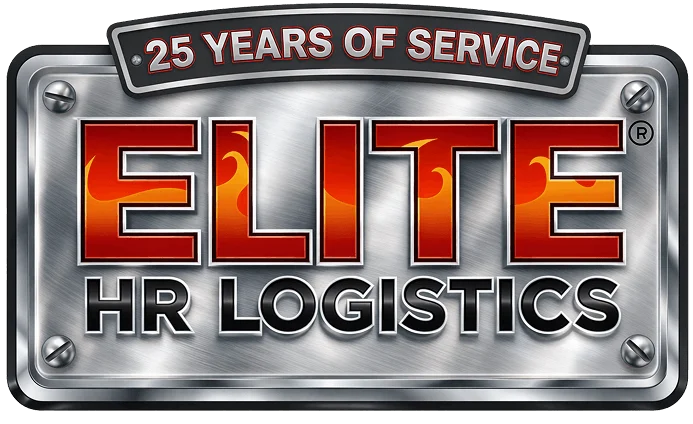As the logistics industry faces new challenges, automation is at the center of many discussions. Recent events, such as the ongoing port strikes, are highlighting concerns about automation and its impact on the workforce. While technology offers the potential for increased efficiency, it also raises critical questions about job security for workers in warehousing and logistics. At Elite HR Logistics, we understand the importance of finding the right balance between leveraging new technologies and preserving the vital role of human labor.
Automation in Warehousing: A Double-Edged Sword
Automation has been transforming the warehousing industry, especially in response to growing demand for faster order fulfillment and the rise of e-commerce. From automated guided vehicles (AGVs) to robotic picking systems, these technologies have become essential for boosting efficiency. But while automation can help warehouses run more smoothly, it’s crucial to recognize that human workers remain irreplaceable in many ways.
Key Technologies Driving Warehouse Automation
Several technologies are transforming warehouse operations:
- Automated Guided Vehicles (AGVs): AGVs help move goods efficiently across warehouses, but human oversight is still critical for managing complex tasks and troubleshooting.
- Autonomous Mobile Robots (AMRs): AMRs increase productivity by reducing the need for workers to perform repetitive tasks. However, they complement human roles rather than replace them entirely.
- Robotic Picking Systems: While robots can handle picking and packing, their accuracy and efficiency are dependent on human workers who manage, monitor, and maintain these systems.
- Automated Storage and Retrieval Systems (AS/RS): These systems improve order fulfillment speed but still require skilled workers to oversee operations and handle exceptions.
- Drones and AI: Drones assist with inventory management, but their effectiveness is greatly enhanced when paired with the experience and judgment of warehouse employees.
Striking a Balance: Automation and Human Labor
Although automation helps improve certain aspects of warehousing, it is important to approach these advancements thoughtfully. Automation should assist employees, not replace them. While it’s true that automated systems reduce human error and help with efficiency, the value of human judgment, problem-solving, and adaptability cannot be overstated. Employees bring an understanding of complex scenarios that machines can’t replicate.
The recent strikes at U.S. ports underline a key point—automation’s role in the workplace is a touchy subject. Workers are expressing concerns that automation may lead to job displacement. And these concerns are valid, especially for those who have built careers in the logistics sector. However, rather than viewing automation as a threat to jobs, it can be a tool to help workers perform their tasks more efficiently, improving workplace safety and creating new, more technical roles that didn’t exist before.
Benefits of Automation for Employees
- Efficiency Without Job Loss: Automation can take over repetitive, physically demanding tasks, allowing workers to focus on more critical roles. For example, instead of manually lifting and transporting heavy loads, employees can supervise and manage automated systems, which reduces physical strain and injury risks.
- New Opportunities for Skilled Work: As technology advances, it creates demand for new skill sets. Workers trained in operating, maintaining, and troubleshooting automated systems will be in high demand. This creates a pathway for employees to move into higher-paying, more technically focused roles.
- Enhanced Collaboration: Automation works best when human workers guide it. By combining technology with human expertise, companies can increase both productivity and job satisfaction. Workers can feel more engaged by handling more complex and rewarding tasks.
Automation’s Drawbacks: Why Human Workers Are Still Key

While automation offers undeniable benefits, there are significant drawbacks if we lean too heavily on technology at the expense of human workers:
- Job Displacement Concerns: As recent strikes show, workers fear losing their jobs to machines. If not managed carefully, automation could lead to job losses, especially in industries that rely heavily on manual labor, like logistics.
- Loss of Human Touch: Some tasks require the creativity and problem-solving skills that only people can provide. Automation, while efficient, lacks the flexibility to handle unexpected situations with the nuance that human workers bring.
- Economic and Social Impact: Over-reliance on automation can affect local economies, especially in areas where warehousing and logistics jobs are a major source of income. Ensuring that automation complements rather than replaces human labor is essential to avoid harming communities.
Preparing for the Future Together
As automation becomes more prevalent, it’s crucial for both businesses and workers to prepare for this shift. Companies should prioritize training their workforce to handle new technologies. By investing in their employees’ growth, businesses can ensure that workers feel secure in their roles and see automation as a tool that enhances their work, rather than something that threatens their livelihood.
At Elite HR Logistics, we believe in the power of human labor and the importance of supporting our workforce in this changing landscape. Our approach to staffing focuses on finding employees who are not only skilled but also adaptable to new technologies. As businesses embrace automation, we help them strike the right balance—leveraging technology to support workers, not replace them.
Conclusion
The debate around automation in warehousing is timely and relevant, particularly with the current port strikes. While automation brings many potential benefits, it’s important that it doesn’t come at the cost of jobs. The future of logistics should focus on enhancing human roles rather than replacing them. Automation should empower workers to be more efficient, creating opportunities for growth, not displacement.
At Elite HR Logistics, we are committed to helping businesses find skilled workers who can thrive in this evolving landscape. Whether it’s navigating automation or managing workforce challenges, we’re here to help your business succeed—because the future of logistics still relies on people!

